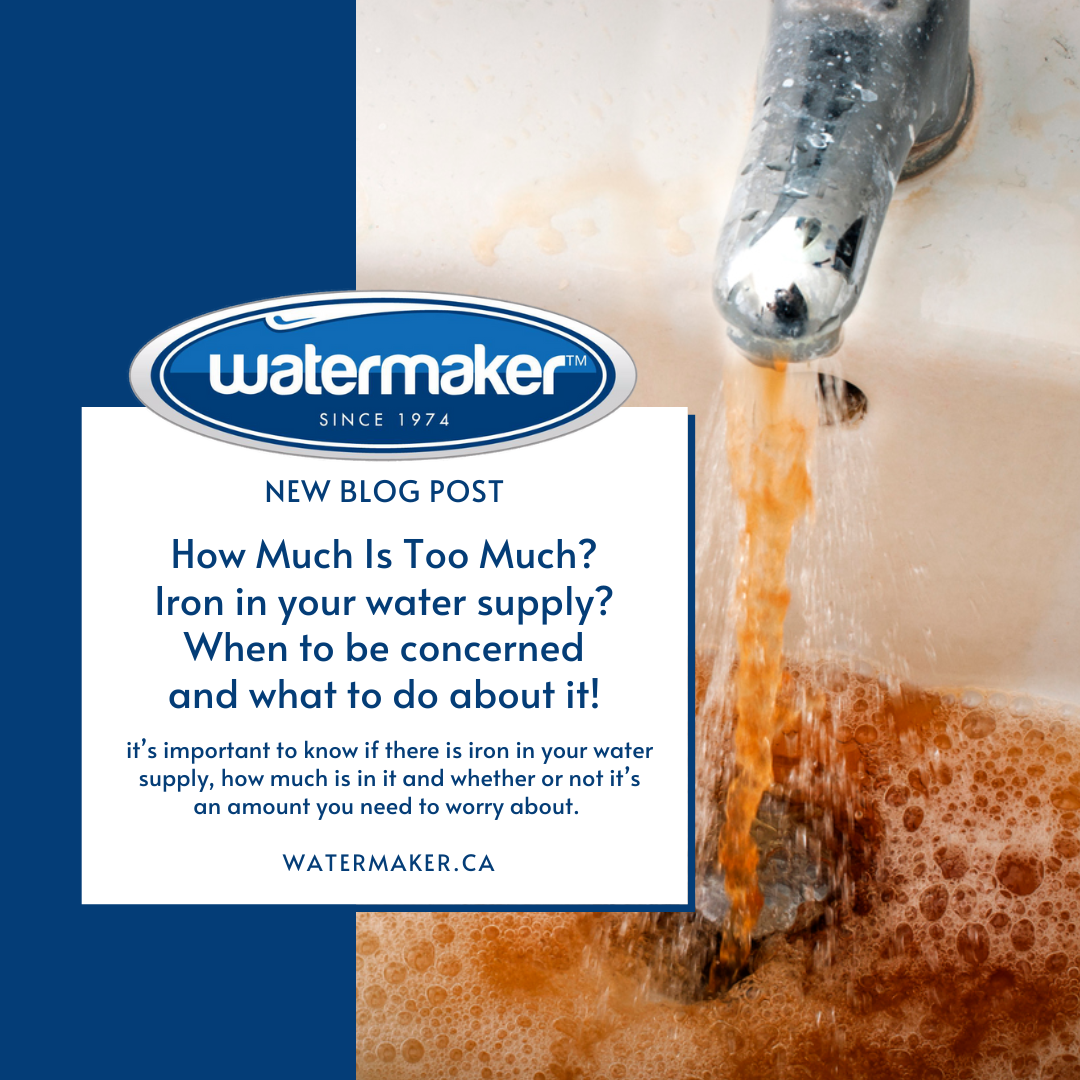Iron in water? How Much Is Too Much? When to be concerned and what to do about it!
Iron is a funny thing. We need it, but for some of us, we don’t get nearly enough while others (often those with very specific medical conditions) store far too much of it, putting our health at risk. Of course, there are also different elements to iron (pun intended) so it’s important to know if there is iron in your water supply, how much is in it and whether or not it’s an amount you need to worry about. How much is too much? Let’s discover the answer together.
We’ll start by being quite clear that the body needs iron. Iron is what helps to transport oxygen in your blood. As your body cannot easily absorb iron from water sources, it’s most often food sources that contribute iron to healthy individuals. In fact, some iron in your source of drinking water is considered safe and an iron deficiency can be just as much of a health risk as an iron overload. In other words, iron is complicated.
All Kinds of Iron!
However, the important thing to remember is this: too much of anything – even a good thing – can cause problems. There are three types of iron and that’s not including the type you smooth out the wrinkles from your clothes with! They are cast iron, wrought iron, and steel. Wait! What? Actually, when it comes to dietary iron there are two main forms called heme, and non-heme. Plants are a non-heme source of iron while fish, poultry, and meat are a source of both heme and non-heme. Iron is necessary for growth in addition to what we’ve already shared about oxygenated blood. Too much iron however can lead to gastrointestinal illness, vomiting and diarrhea, and stomach pain. More critically, it can also lead to liver, pancreas, kidney, and heart damage. High iron in water sources can even potentially lead to a diabetes diagnosis and/or cause fatigue, inflammation, and joint pain.
What does all of this have to do with water?
Confused? Wondering what all of this has to do with water? Well, as we said in our opening paragraph water DOES contain iron and a certain amount of iron is allowable by law. That amount is generally considered to be approximately .3mg per litre. What doesn’t often immediately come to mind when we talk about iron in water is its other impacts such as taste, smell colour, and sediment.
- Taste: Iron can have a very “metallic” taste affecting not just the water you drink but even your favourite cup of tea or coffee. It will also impact the taste of food, making it unpalatable for some.
- Smell: Iron emits a smell described by most as sulphurous in nature which can be very unpleasant indeed. Alternatively, like the taste – the smell is sometimes thought of as metallic.
- Colour: Iron often turns water – particularly if the iron content is very high – yellow, brown, or even red.
- Sediment: In some circumstances iron will even leave sediment behind, potentially damaging your health and even your plumbing!
That brings us to our last point. Excess iron in water will undoubtedly cause wear and tear to your plumbing, fixtures, and appliances. It will build up as residue eventually causing clogged drains and slow water drainage. Iron can cause staining, particularly on porcelain bathroom fixtures that are difficult to remove. Yellow, or reddish-brown in colour, presents a challenge to even the most stringent of cleaners.
If it is not already abundantly clear, iron filtration is really in your best interests. Watermaker Orangeville offers iron filtration and removal systems that will impact not only the taste of your water and prevent possible health issues but filtration systems that will result in clean, clear water for your clothes, dishes, and cooking, and that won’t cause long-term damage to your pipes, faucets, and fixtures. There’s a lot to learn about iron; the good, the bad, and the ugly! If you’d like to know more, drop by, call, or even use our chat online feature to speak with the experts at Watermaker. Learn how to remove iron from your water source, safely, efficiently, and with a product that’s guaranteed to please. Contact Watermaker today!



